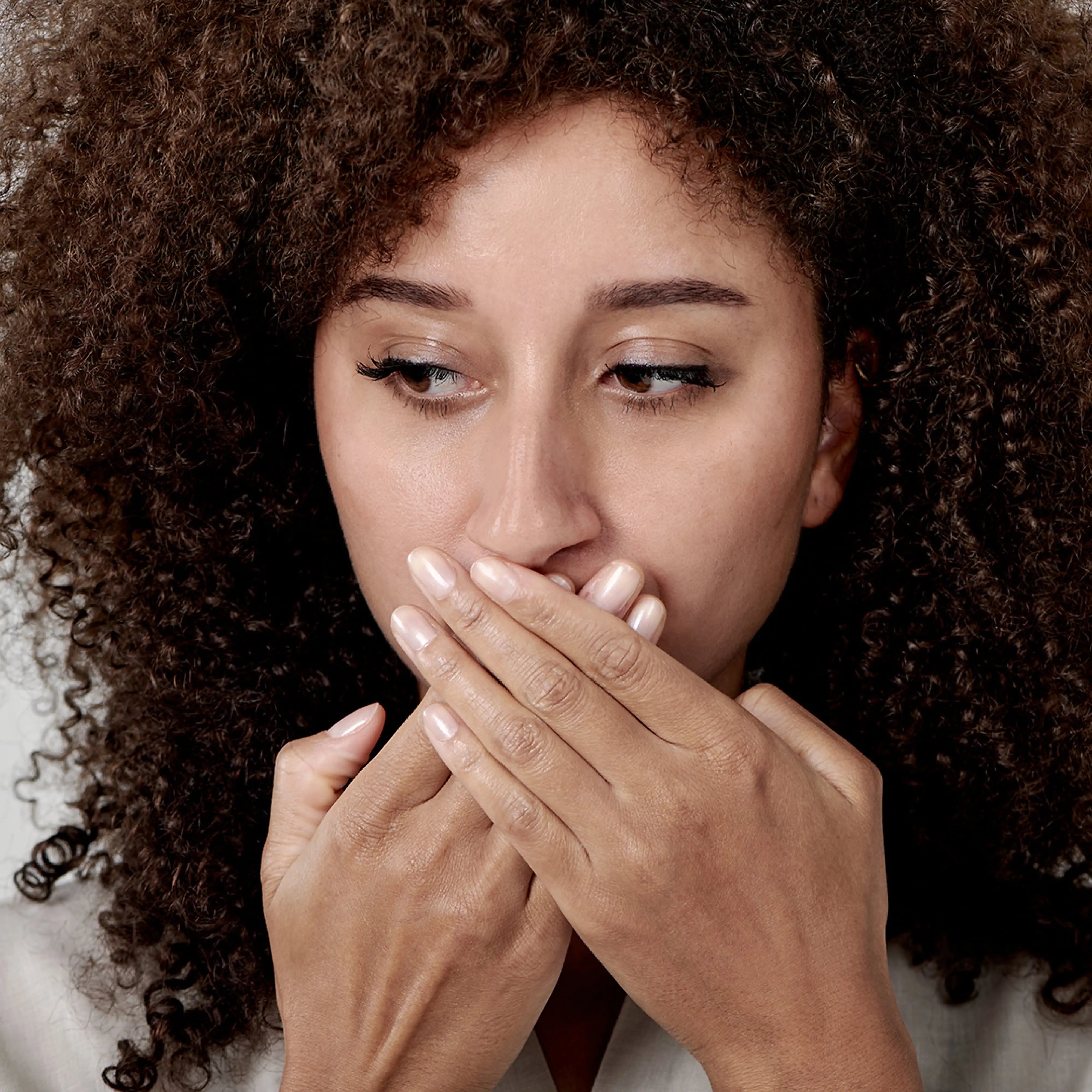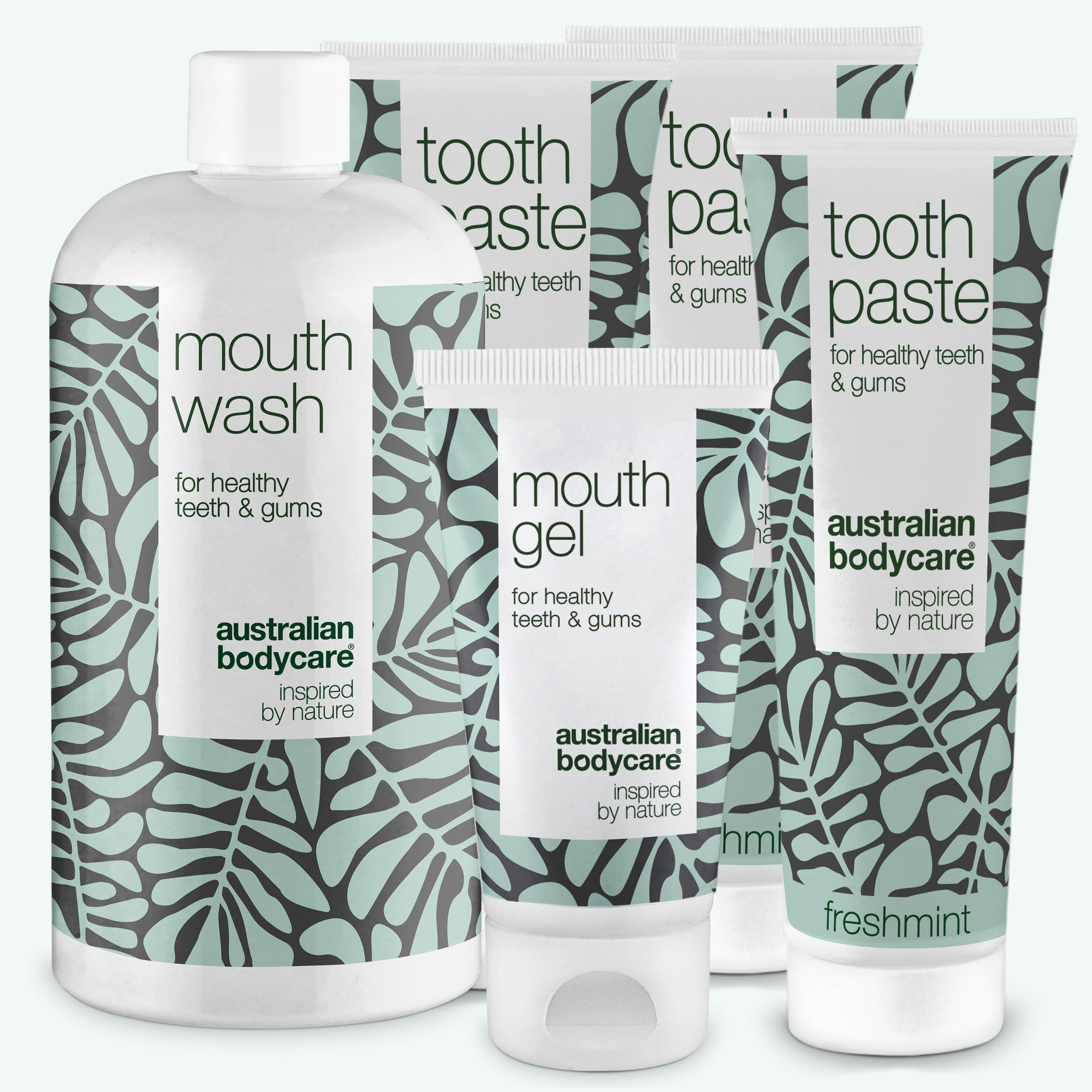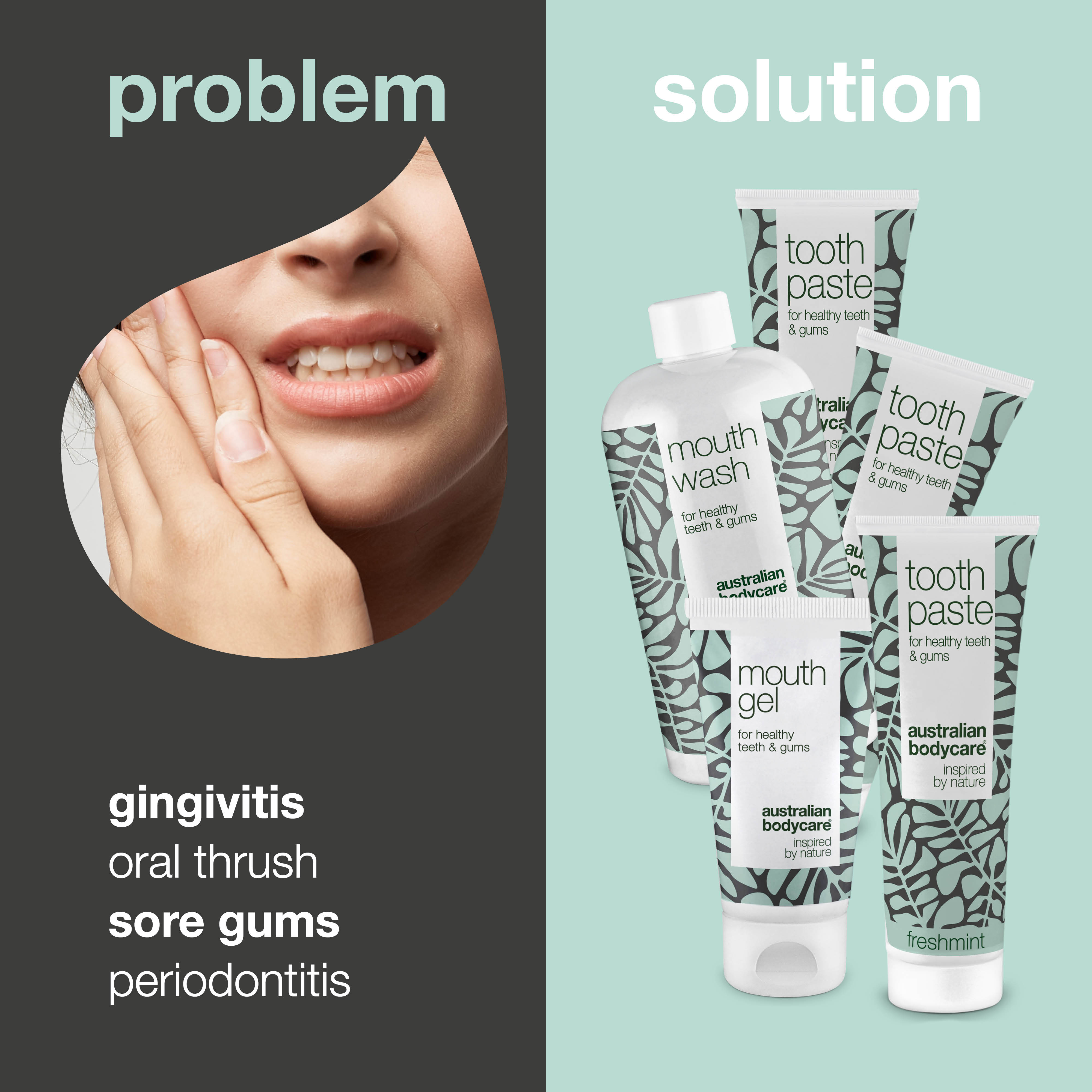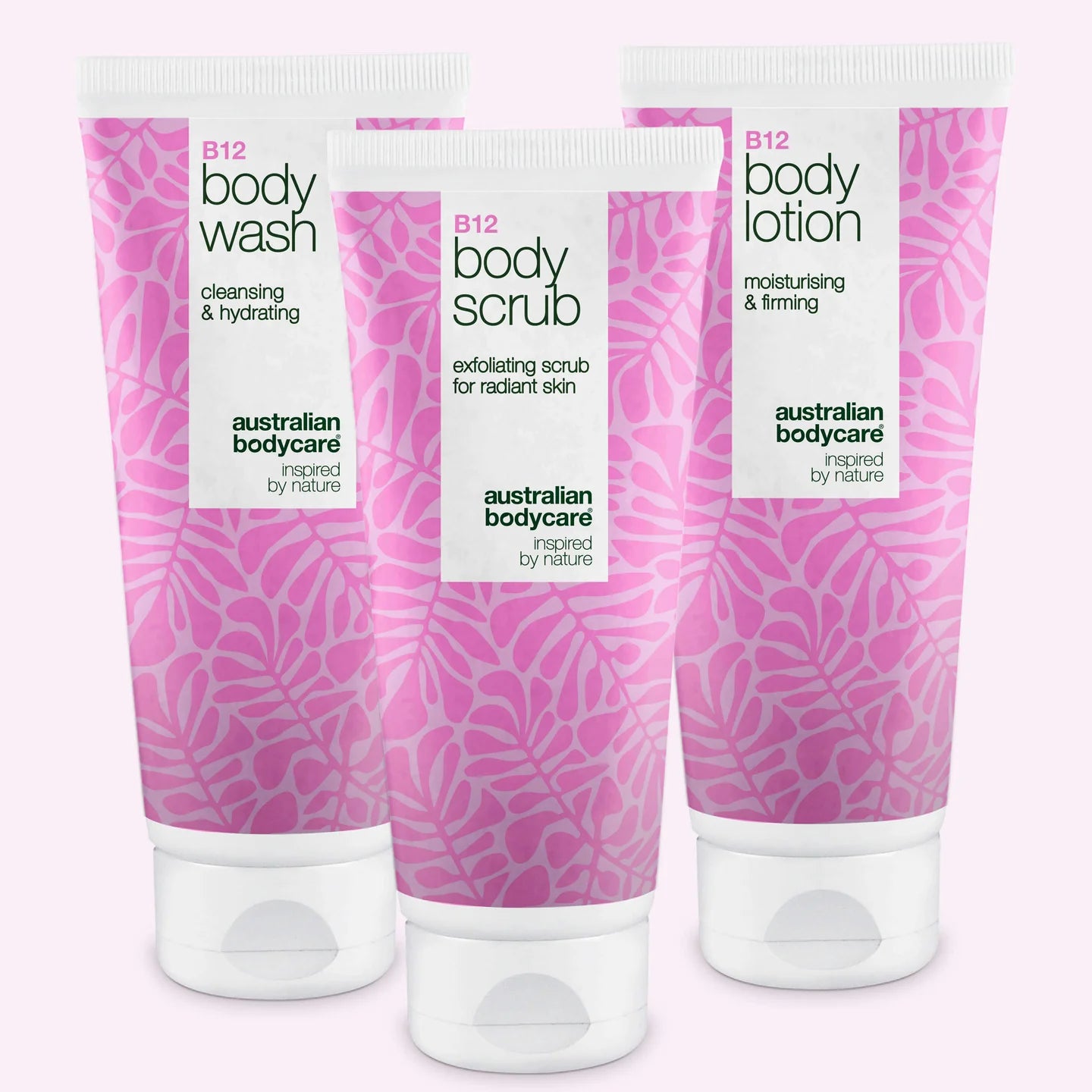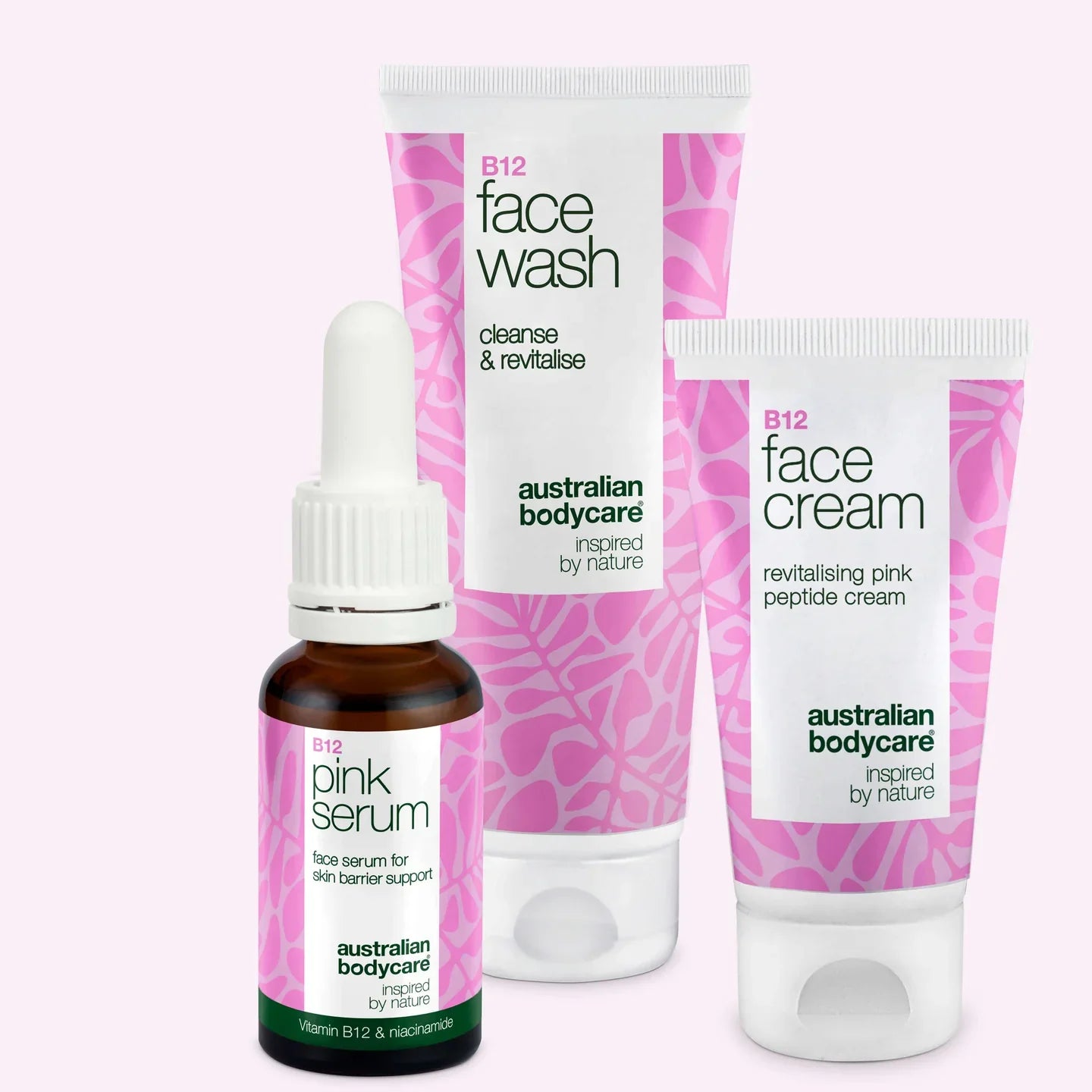Teeth Grinding: Symptoms, Causes, and Treatments
Teeth grinding, also known as bruxism, occurs when people unconsciously clench their jaws or grind their teeth. This can happen both during the day and at night. Symptoms can include worn teeth, sensitive teeth, jaw joint problems, and tension headaches.
Table of contents
What is Teeth Grinding and What are the Symptoms?
Teeth grinding happens when you grind your teeth at night without being aware of it. Symptoms include worn or damaged teeth, jaw pain, headaches, and neck and shoulder pain.
Worn or Damaged Teeth
Worn teeth can be a sign that you suffer from bruxism. It's a condition where people clench or grind their teeth without being aware of it. This problem often occurs at night.
A dentist can spot these signs during a routine check-up. Without treatment, it can lead to serious tooth damage and increased sensitivity.
Mouthguards are an effective solution to protect teeth from further damage. They create a protective layer between the teeth, significantly reducing wear. Using a mouthguard at night can help reduce the risk of further damage from grinding or clenching.
Jaw Pain
Jaw pain can be a clear sign that you grind your teeth, especially at night. The dentist often detects this problem by examining your gums and asking about your pain.
This condition, known as bruxism, not only affects the teeth but also puts pressure on the jaw muscles, leading to pain. Treating bruxism is important as it can significantly reduce your pain.
Identifying the causes behind bruxism, such as stress or sleep problems, is necessary to address the pain. By addressing these underlying causes, effective solutions can often be found and bring significant relief.
It's not just about protecting the teeth but also ensuring your jaw gets the rest and support it needs to heal and function properly.
Headache
Bruxism can lead to tension headaches. This type of headache is often due to grinding teeth, especially at night. It puts extra pressure on the jaw and facial muscles, building up and causing constant pain in the head.
Treating bruxism is important to stop this pain. Without treatment, it can lead to more serious dental problems, including worn or damaged teeth.
Wearing a mouthguard, practicing stress management techniques, or seeking help from a dentist can help reduce or stop the headache.
Neck and Shoulder Pain
Neck and shoulder pain can be a consequence of teeth grinding. Neck and shoulder tension can be exacerbated by involuntary teeth grinding at night, leading to soreness and stiffness.
Stress and worries, often associated with teeth grinding, can also contribute to neck and shoulder pain, resulting in discomfort and muscle tension. It's important to identify the symptoms of teeth grinding to undertake appropriate treatment for both teeth grinding and the resulting neck and shoulder pain.
While teeth grinding can cause neck and shoulder pain, several treatment options can help alleviate these symptoms. Mouthguards can reduce teeth grinding and thereby lessen neck and shoulder pain.
Causes of Teeth Grinding
Stress and anxiety can be a trigger for teeth grinding. Sleep disorders and dental issues can also contribute to the problem. Read on to understand how these causes affect and gain insight into treatment options.
Stress and Anxiety
Stress and anxiety can lead to teeth grinding. It's important to recognize that stress and worries can affect your oral health. Finding time for relaxation exercises or meditation can be helpful as it can contribute to reducing teeth grinding at night.
Stress and anxiety are known causes of teeth grinding, so it's crucial to tackle these challenges to reduce symptoms and improve your oral health.
Dental Issues
Dental issues can result from bruxism, which can cause wear on the teeth as well as problems with the jaw joints. Untreated bruxism can lead to extensive damage to the teeth, emphasizing the importance of identifying and treating the condition to avoid further dental issues.
It's therefore important to seek professional help to manage the symptoms and minimize the risk of long-term consequences.
Sleep Disorders
Sleep disorders can cause bruxism at night, resulting in worn teeth and sensitive teeth. These disorders can negatively impact both sleep quality and daily activities.
Identifying sleep problems is crucial for effective bruxism treatment and can help improve overall health and well-being.
Treatment Options for Teeth Grinding
There are several treatment options for people who grind their teeth. Mouthguards can help reduce damage to the teeth and relieve jaw pain. Stress management techniques can help reduce the cause of grinding and thereby reduce symptoms.
Dental treatment may be necessary to repair any damage caused by teeth grinding.
Mouthguards
Mouthguards are an effective treatment option for bruxism. These guards protect the teeth and alleviate teeth grinding and clenching during sleep.
Using a mouthguard at night can reduce damage to the teeth and alleviate the discomfort associated with bruxism.
Stress Management Techniques
Stress management techniques are crucial for reducing bruxism. A combination of different methods can help manage and reduce stress, which can be a primary cause of teeth grinding. Here are some effective techniques:
1. Deep Breathing: Practice deep breathing exercises to calm the mind and reduce tension.
2. Meditation: Take time for daily meditation to find inner peace and reduce anxiety levels.
3. Exercise: Regular physical activity can help release endorphins, which reduce stress and tension in the body.
4. Yoga: Yoga exercises focus on both physical strength and mental relaxation, which can be beneficial against stress-related issues.
5. Time Management: Organize your daily routine for better control over tasks and responsibilities, which can reduce stress levels.
6. Therapy: Professional counseling or therapy can help address the root causes of stress and anxiety.
Implementing these techniques along with bruxism treatment can significantly reduce tooth damage and pain associated with teeth grinding at night.
Dental Treatment
Dental treatment involves various methods to manage teeth grinding, including the use of mouthguards that protect the teeth from grinding and clenching. A thorough assessment of dental health by a dentist is crucial to identify any problems with teeth grinding and to customize the right mouthguard.
The importance of seeking dental help for appropriate treatment cannot be overstated, as it can help prevent long-term damage to teeth and jaws. With the right dental treatment, symptoms such as headaches, neck, and jaw pain associated with teeth grinding can be alleviated.
Bruxism can have serious consequences for dental health and well-being, but dental treatments such as mouthguards and regular visits to the dentist can help alleviate the problem.
Prevention of Teeth Grinding
Preventing teeth grinding involves reducing stress levels through mindfulness or yoga. It's also important to avoid hard foods and chewing gum, and to use a mouthguard to alleviate jaw tension.
Reduce Stress Levels
Reducing stress levels can positively impact the treatment of teeth grinding. Practicing relaxation techniques such as meditation and deep breathing can help reduce stress levels.
It can also be useful to establish healthy sleep habits and maintain regular exercise, as these activities can help reduce stress and anxiety levels.
Avoid Hard Foods and Chewing Gum
Avoid chewing hard foods, as this can worsen the situation and cause more damage. Chewing gum should also be avoided as it can increase tooth wear and worsen the symptoms of bruxism.
Make sure to choose softer foods that don't require intensive chewing and avoid using chewing gum as a substitute for food.
Use Mouthguard
A mouthguard can be used to protect teeth from grinding and clenching during sleep. It is an effective treatment against bruxism that can alleviate symptoms such as worn or damaged teeth and jaw pain.
The mouthguard works by creating a barrier between the teeth, which reduces damage caused by grinding and less muscle activity in the jaws. This helps relieve pain and discomfort that can arise due to bruxism.
Get Treatment for Sleep Disorders
Treating sleep disorders is crucial for improving overall health and well-being. Identifying and addressing the causes of bruxism can help resolve sleep disorders.
Additionally, therapy and stress management techniques can be effective strategies for improving insomnia and enhancing sleep quality.
Seeking treatment for sleep disorders is essential for improving well-being and health. The treatment can include therapy, stress management, and other effective strategies to reduce teeth grinding and improve sleep.
Conclusion
Treating teeth grinding is essential to avoid further discomfort. Using a mouthguard at night can relieve the chewing muscles and protect teeth from wear. It's recommended to seek help from a dentist for treatment, especially if bruxism is hereditary.
Treating bruxism is important for achieving better oral health and reducing discomfort.
FAQ
What are the symptoms of teeth grinding?
Symptoms of teeth grinding include noticeable wear on the teeth, jaw pain, headaches, and in some cases, it can lead to migraines. People may also experience increased tooth sensitivity and facial pain.
Why do some people start grinding their teeth?
Reasons why people start grinding their teeth can vary from stress, anxiety, and depression to psychiatric conditions. It can also be an unconscious habit or triggered by alcohol consumption.
Can children also grind their teeth?
Yes, teeth grinding is not just a phenomenon among adults. Children can also grind their teeth, especially in their sleep, which can be linked to growth periods or as a reaction to discomfort.
How can you stop grinding your teeth?
To stop grinding your teeth, it may be necessary to use various treatments such as using a mouthguard at night, stress-reducing techniques, proper dental care with a toothbrush and toothpaste, and in some cases, medication.
Do mental health problems play a role in teeth grinding?
Yes, mental health problems such as stress, anxiety, and depression play a significant role in teeth grinding. It is important to address these underlying issues to effectively treat the condition.
Are there home treatments for those who grind their teeth?
Home treatments can include practicing good sleep hygiene, reducing alcohol consumption, applying warm water to the jaw area to relieve pain, and exercises for the jaw. However, it is always recommended to consult a professional at a dental clinic for personal guidance and treatment.

